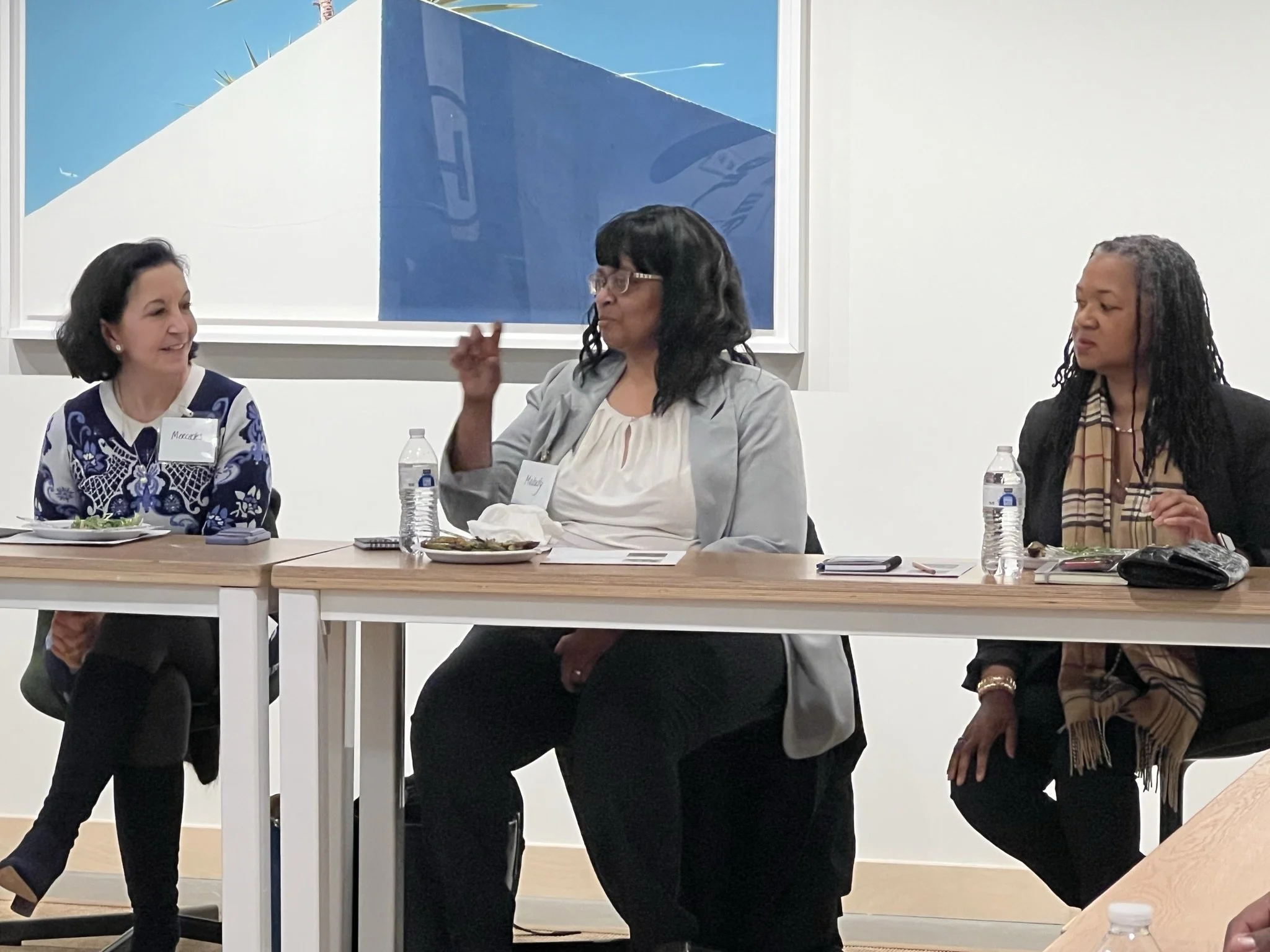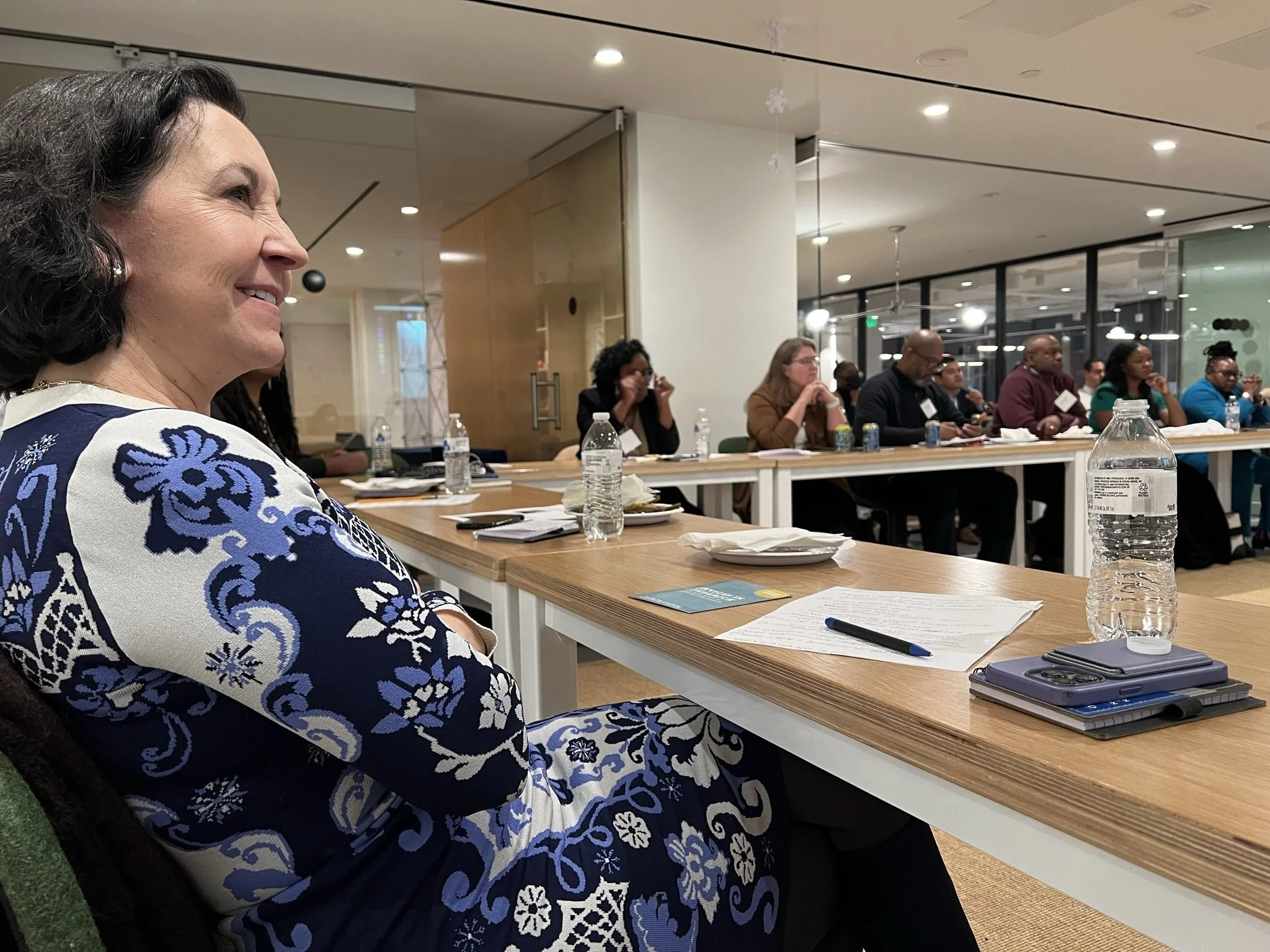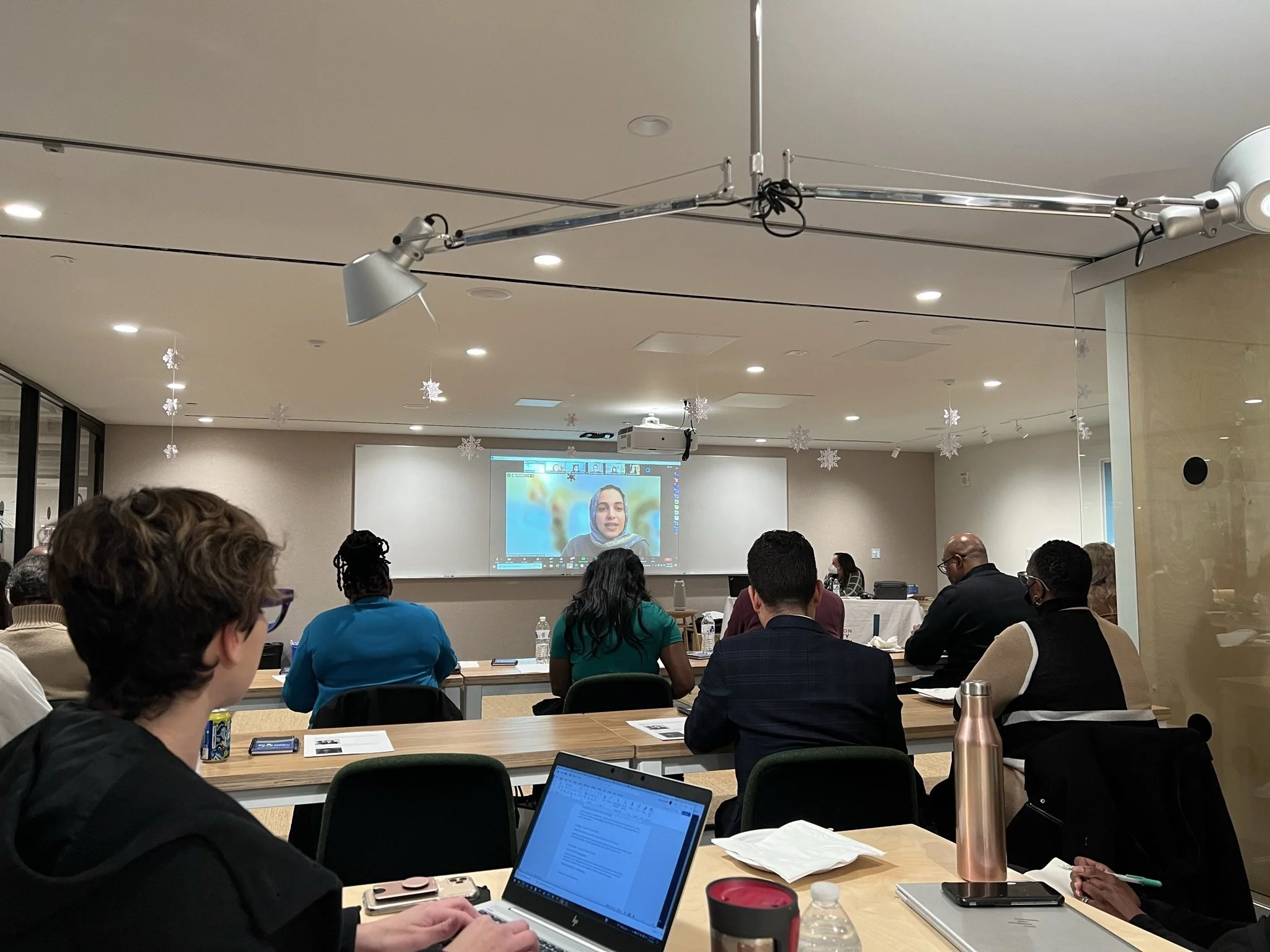Helping Nonprofits Navigate the Guaranteed Income Movement
Last month, the Greater Washington Community Foundation’s Health Equity Fund hosted its first Lunch & Learn Event with nonprofit partners from its inaugural $9.2 million grant round, and other organizations interested in launching and sustaining guaranteed income pilots. The event was hosted at the offices of Capital Area Asset Builders (CAAB) and featured a virtual panel of national experts who shared insights about executing successful and sustainable pilots.
“The Health Equity Fund team believes in the inextricable link between health and wealth,” Dr. Marla M. Dean, Senior Director of the Health Equity Fund explained. “That is why we are using an economic mobility frame to address the social determinants of health – in alignment with The Community Foundation’s broader vision to closing the racial health and wealth gap.”
“We believe that guaranteed income pilots are one of the best ways to achieve that.”
Launched in 2017, the Guaranteed Income Movement was designed to provide unrestricted cash transfers to help individuals and families improve their economic stability. Deemed a “quiet revolution in social policymaking”, the Guaranteed Income Movement has quickly taken center-stage in the economic mobility arena. As of September 2022, there were 100 such pilots announced across the United States – including several in the Greater Washington region.
That figure has increased since October, when several Health Equity Fund partners from the inaugural grant round announced they were using their funding to launch their own Guaranteed Income Pilots (also known as Cash Transfer Programs).
“We are delighted to watch the incredible work you all are doing in DC,” Natalie Foster, President and Co-Founder of the Economic Security Project shared with the group. “You all are pioneers in how we think about the social contract in America – one that centers dignity and humanity and freedom and agency for people.”
As part of the event, nonprofit partners had a chance to share their questions with the virtual panel – which included some of the founding funders and organizers of the movement. Questions ranged from how to build the right narrative to how to ensure the financial sustainability of the work.
“We believe that our families know better than anybody else what they need,” Sarah Stripp, Managing Director of Springboard to Opportunities shared in response to a question about program design. Sarah Stripp was the manager behind The Magnolia Mother’s Trust – one of the first Guaranteed Income Pilots founded in Mississippi in 2018.
“We’ve found that the most successful ideas come from an intentional design process where we’re creating something with individuals, instead of just for them; a process where, we’re proactive in engaging those we serve to figure out what works.”
“How we frame our initiatives – the narrative we use – is really key to helping them become sustainable,” shared Halah Ahmad, a Vice President at Jain Family Institute (JFI) shared. In addition to funding some of the Guaranteed Income Pilots, JFI has also conducted research about public perceptions of cash transfer programs.
“We’ve seen a direct correlation between the way a cash transfer program is framed and the amount of support they receive. Is it framed as a poverty-fighting program? Is it framed as a community empowerment mechanism? The language you use to frame your initiative really matters.”
Nick Salazar of the Fund for Guaranteed Income and Katherine Cagat of Mayors for Guaranteed Income added that it’s important to engage and empower the individuals they serve in creating the narrative, rather than building a narrative around them.
“When you have people speak about their own experiences, rather than being presented, you allow them to tell their story in their own way,” Katherine explained. “This is critical to preserving their dignity and humanity, while at the same time giving them a platform to tear down negative stigmas that our society has about people in their situation.”
Panelists also talked about the importance of being purposeful in identifying and connecting with their target audience.
“Beliefs about poverty and those living in poverty run deep in this country,” Nick added. “We can’t fully wait for everybody to change their mind before we begin.”
“We need be bold and intentional in this work, staying focused and being true to the communities we’ve committed to serve; the people we’re striving to serve.”
“As long as you’re doing that, I don’t think you can go wrong.”
The Community Foundation is committed to promoting economic justice throughout the Greater Washington region through strategies like Guaranteed Income Pilots, Children’s Trust Accounts, and Community Wealth Building. For more information, visit https://www.thecommunityfoundation.org/guaranteed-income




